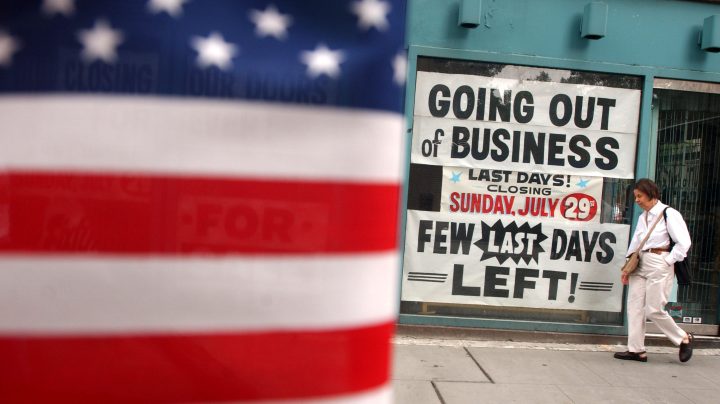
Economists are predicting a recession. Does that really mean we’ll have one?
Economists are predicting a recession. Does that really mean we’ll have one?

The year’s first meeting of the Federal Reserve’s interest rate policymaking panel starts Tuesday. On Wednesday, after the decision is announced and Fed Chair Jerome Powell holds his regular news conference, analysts will be looking for signals of what’s to come for this economy.
“I don’t think anyone knows whether we’re going to have a recession or not, and if we do, whether it’s going to be a deep one or not,” Powell said at the December news conference. “It’s just, it’s not knowable.”
However, there is a whole field of economic forecasters who try to do this, and many predict that a recession is coming this year. In letters explaining recent layoffs, some CEOs — like Microsoft’s Satya Nadella — cited recession forecasts and macroeconomic conditions.
Because these views of the future are affecting the economy right now, “Marketplace” spoke to Wells Fargo Chief Economist Jay Bryson and Ginger Chambless, head of research for commercial banking at JPMorgan Chase, about how economic forecasts are made.
What are they expecting this year?
Both Wells and JPMorgan anticipate a recession in 2023. Bryson described it as “modest” and Chambless as “mild.”
“We’re looking for the unemployment rate to rise to roughly 5% by the end of this year,” Bryson said. “To put that into perspective, if you go back and you look at the financial crisis, the unemployment rate rose to 10%. So it wouldn’t be the widespread pain we felt in 2008 and 2009.”
“The strength in the labor markets is definitely a factor that we think will mitigate the severity of any downturn,” Chambless said.
How did they get there?
Creating these forecasts involves a mix of science and art, according to Bryson and Chambless.
On the science side, forecasters use economic models to calculate the probability of a recession. Their models incorporate data like the latest reads on inflation, consumer sentiment and unemployment as well as historical trends.
“You’ve got to take them with a little bit of a grain of salt,” Bryson said of the models. “It’s a vast simplification of the U.S. economy, which is really, really complex.”
That’s where the art comes in. Bryson and Chambless referenced unique aspects of this macroeconomic moment — like the effects of the pandemic and the strength of the labor market — as factors they’re incorporating into their forecasts that might not be captured by a single data point.
Are forecasts usually accurate?
Bryson and Chambless said their firms continually update their forecasts with the latest economic data and events. Bryson called the job “very similar” to that of weathermen, with both trying to predict what’s going to happen to complex, changing systems.
“We all give weathermen a hard time when they say it’s going to be a beautiful day and you get to the beach and all of a sudden it starts to rain. You say, ‘What were these knuckleheads thinking?’ It’s kind of the same thing with economists.”
Jose Fernandez, chair of the economics department at the University of Louisville, provided a caveat as well.
“There have been a couple of studies that have looked at this question of, how well do economists predict recessions and booms?” Fernandez said. “Across the board, they are very, very, very poor at predicting booms and busts and when a recession is going to happen.”
An International Monetary Fund study Fernandez referenced looks at economic forecasts of 63 countries from 1992 to 2014. Prakash Loungani, one of the co-authors, said on his site that “the failure of economists to forecast recessions is virtually unblemished.”
The official declaration of whether the United States is or was in a recession comes from the National Bureau of Economic Research’s Business Cycle Dating Committee. The last recession — from February to April of 2020 — was the shortest on record.
There’s a lot happening in the world. Through it all, Marketplace is here for you.
You rely on Marketplace to break down the world’s events and tell you how it affects you in a fact-based, approachable way. We rely on your financial support to keep making that possible.
Your donation today powers the independent journalism that you rely on. For just $5/month, you can help sustain Marketplace so we can keep reporting on the things that matter to you.

















